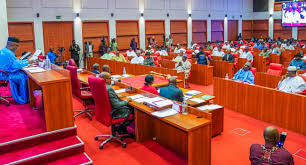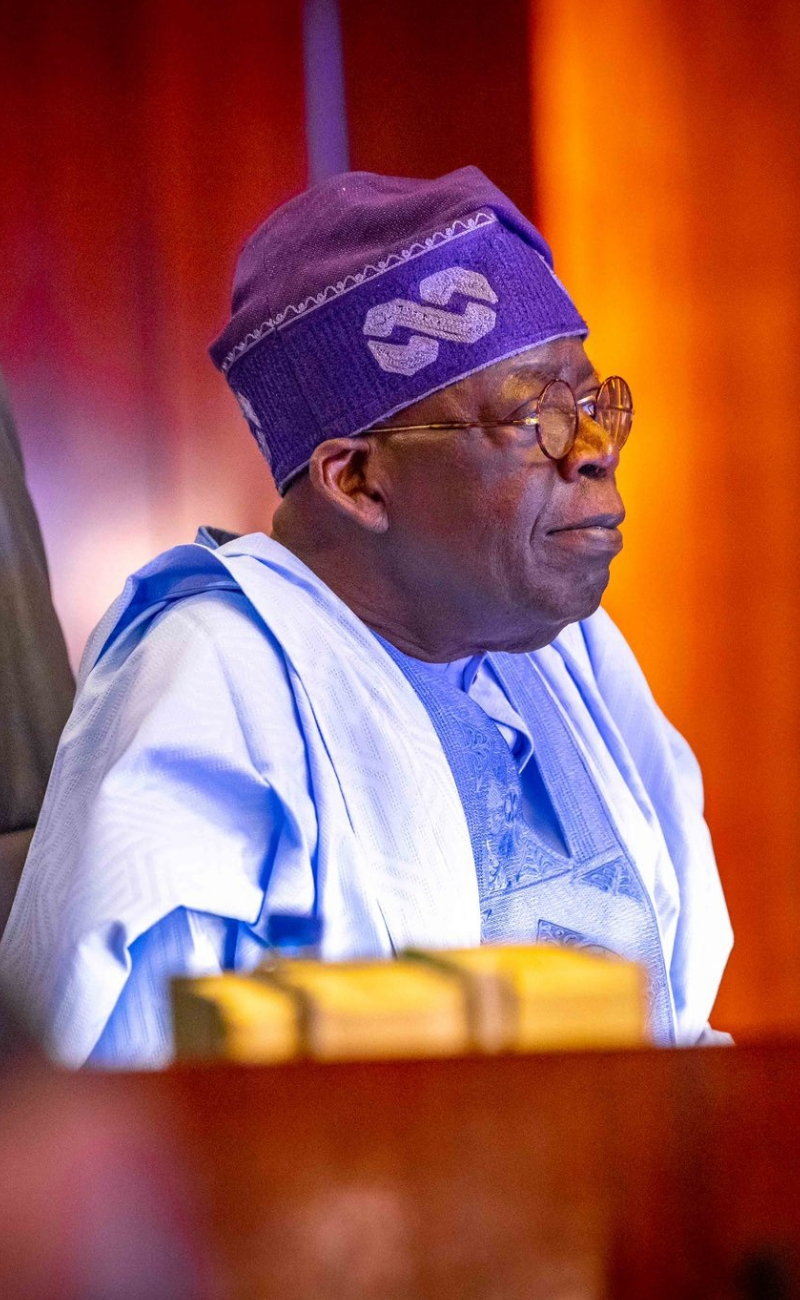For years, Nigeria’s public procurement system has been widely criticised for its overly complex, rigid, and exclusionary nature, which tends to favour well-established and, often, foreign firms.

In a significant policy shift aimed at boosting grassroots economic development, the senate has directed its committees on public procurement and local content to initiate amendments to the Public Procurement Act and the Nigerian Local Content Act.
The goal is to lower existing entry barriers and level the playing field for indigenous contractors and start-ups, enabling them to more effectively compete for federal government contracts and service provision.
The decision followed the adoption of a motion titled “The preponderant need to engage local indigenous contractors for the execution of small-scale federal government contracts to stimulate grassroots economic development,” sponsored by Sen. Sadiq Umar (APC, Kwara north), during Wednesday’s plenary.
Presenting the motion, Sen. Umar argued that Nigeria’s commitment to inclusive economic growth, poverty reduction, and sustainable job creation must be reflected in the structure of public procurement. He stressed that small and medium-sized enterprises (SMEs), especially local contractors, are vital to national development.
According to him, these businesses not only account for the majority of Nigeria’s private sector but also hold immense potential for job creation, wealth redistribution, and skill development, especially within local communities.
However, Umar lamented that in practice, this potential remains largely untapped due to institutional constraints. Despite existing policies such as the Local Content Initiative and the Renewed Hope Infrastructure Development Fund of the current administration, small-scale contracts valued under ₦50 million are frequently awarded to large, often foreign or non-local companies. This, he noted, defeats the purpose of grassroots empowerment and stifles local entrepreneurship.
The senator explained that when local contractors are shut out of the federal procurement process, communities lose out on both economic and social benefits. “Engaging local contractors for such contracts significantly enhance community participation, job creation, increase productivity, foster a sense of ownership in public projects, and ensure that government spending circulates within local economies,” he said.
The debate that followed brought to light the long-standing grievances and systemic barriers faced by local contractors in the procurement space.
Sen. Sani Musa (APC, Niger east) noted that stringent conditionalities imposed by the Bureau of Public Procurement (BPP) often exclude capable indigenous contractors from participating in projects located within their communities.
“You’ll find a project in Zamfara that a local contractor in Zamfara can handle, but due to bottlenecks in the guidelines, a contractor from Cross River is awarded the job instead,” he remarked. He warned that such exclusion not only undermines local capacity but also contradicts the federal government’s rhetoric on empowering Nigerians economically.
Musa called for a restructuring of the procurement process into levels or tiers—Tier 1, Tier 2, and Tier 3, based on financial thresholds and capacity. He also criticised the recent increase in required capital thresholds for contract bids, saying it further alienates small businesses.
“An iron bender who can competently handle a ₦50 million job won’t get it because he can’t meet the financial prerequisites. That’s wrong. We must adjust these requirements to accommodate everyone and boost economic activity at the grassroots,” he argued.
Adding to the growing chorus of concerns, Sen. Adamu Aliero (APC, Kebbi central) questioned the rationale behind systematically sidelining qualified Nigerian firms from benefitting from their own government’s contracts.
He drew attention to the paradox of a sovereign nation that outsources basic development projects to foreign firms while neglecting its own citizens.
“No Nigerian contractor, no matter how skilled, can go to China to get a contract,” Aliero said pointedly. “I don’t see why we should not engage indigenous people to participate in the construction. We are effectively locking out our own people while opening the doors wide for others to dominate our economy. It makes no sense.”
Echoing similar sentiments, the Deputy President of the Senate, Barau Jibrin, warned that the current system is not only economically counterproductive but also unjust. He emphasised that the issue was not about xenophobia or hostility towards foreign firms, but about creating equity and empowering Nigerians through policies intentionally crafted to favour them.
He said, “our local contractors are being shortchanged. It is not that we don’t like foreigners, but our people should not remain like that. The Local Content Act should be amended to reflect the realities and needs of our country.”
Supporting the motion, Sen. Abdul Ningi (PDP, Bauchi central) shared his personal experience as a former local contractor. He described the procurement process as one riddled with excessive and unnecessary documentation, designed in a way that benefits only those who are already well-resourced or connected.
“Even a basic road dredging job becomes inaccessible because of the hurdles created by the BPP,” Ningi said. He described the current system as a cartel-like structure where only the well-established survive, to the detriment of local economies.
Presiding over the session, Senate President Godswill Akpabio backed the motion, describing the existing framework as deeply flawed and biased against local contractors. He said it was high time the acts governing public procurement and local content were reviewed.
“None of us can go to Germany or China and win a contract, yet Chinese firms win even road sweeping contracts here,” Akpabio said.
He argued that the essence of the Public Procurement Act and the Local Content Act should be to empower Nigerians, not disenfranchise them. “The BPP should not be a stumbling block but a facilitator of economic inclusion.
“Once these amendments in the requirements are made, it will create job opportunities for Nigerians and stop the idea of bringing low level workers who come and take the jobs that could have been done by nugerians, further worsening the rate of unemployment in the country,” Akpabio said.
For years, Nigeria’s public procurement system has been widely criticised for its overly complex, rigid, and exclusionary nature, which tends to favour well-established and, often, foreign firms.
While the intent behind the Public Procurement Act 2007 was to promote transparency, accountability, and value for money in public contracting, its implementation over time has evolved in a way that disproportionately disadvantages local businesses, especially startups and small-scale contractors.
One of the major barriers lies in the stringent prequalification criteria routinely demanded by government Ministries, Departments, and Agencies (MDAs). While the Act itself does not explicitly prescribe a minimum number of years of experience, MDAs often impose conditions requiring three to five years of prior experience executing similar contracts, along with evidence of performance, audited accounts, tax clearance certificates, bank guarantees, and in some cases, international certifications.
These requirements, though intended to ensure contractor competence, have had the unintended consequence of excluding newer, smaller firms that may have the capacity but lack the documentation or track record to compete.
As a result, the procurement space has become largely dominated by a small circle of large, well-capitalised firms, including foreign contractors who can afford to meet these conditions with ease.
This dynamic is particularly evident in infrastructure projects such as roads, bridges, and public buildings where federal contracts worth less than ₦50 million, which could ordinarily serve as a lifeline for indigenous SMEs, are still awarded to bigger players.
Foreign firms, with better access to capital and global networks, consistently outbid and outqualify local businesses, even for relatively small-scale works.
Furthermore, the Nigerian Local Content Act, originally designed to promote indigenous participation in sectors such as oil and gas, has seen limited impact outside those industries.
Despite being a potentially powerful tool for empowerment, its application in general federal contracting remains weak and inconsistent. The Act has also been criticised for focusing more on formal compliance such as registering a local subsidiary rather than ensuring real local ownership, job creation, or capacity development.
This situation has caused widespread frustration across the country, particularly among professionals, tradespeople, and entrepreneurs who watch as projects in their own communities are awarded to outsiders.




